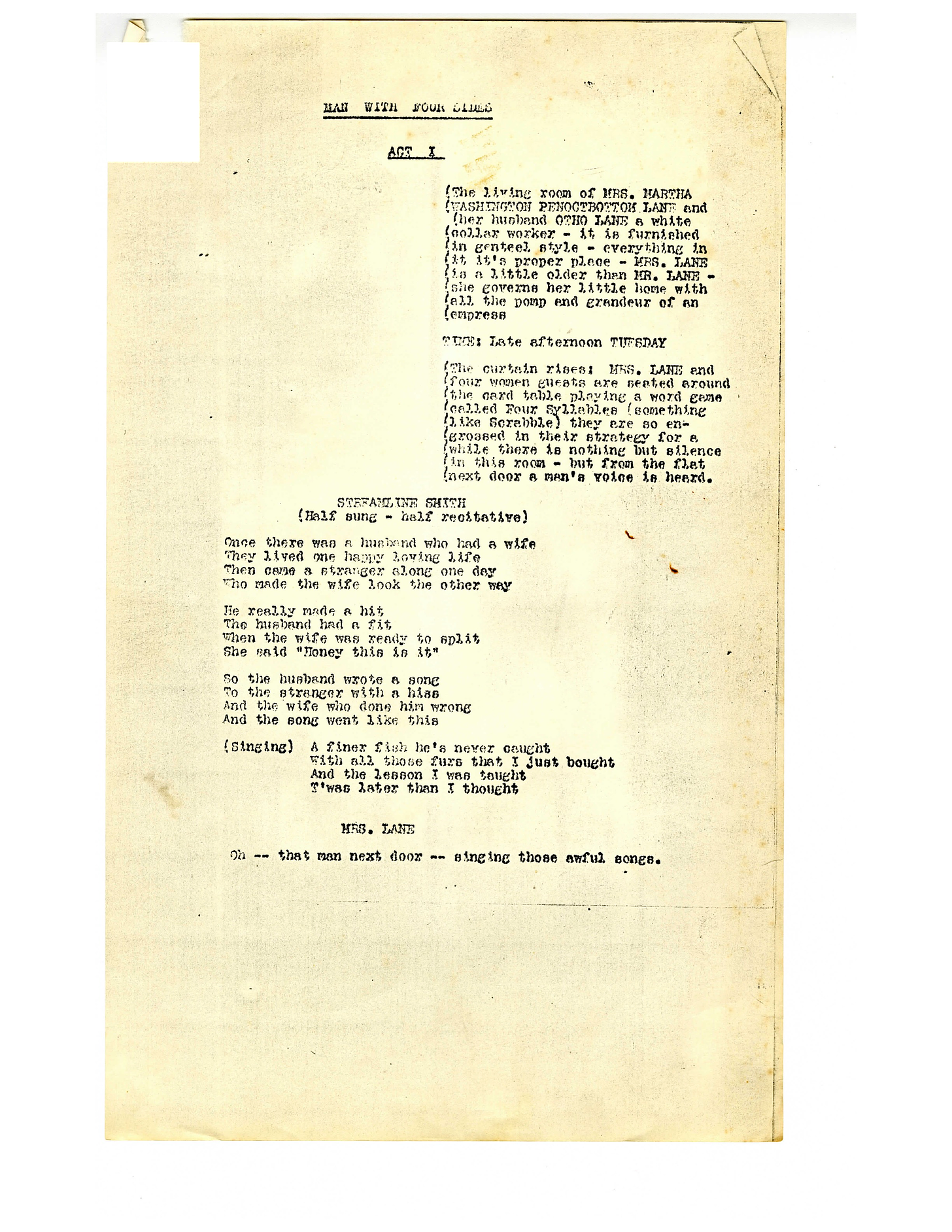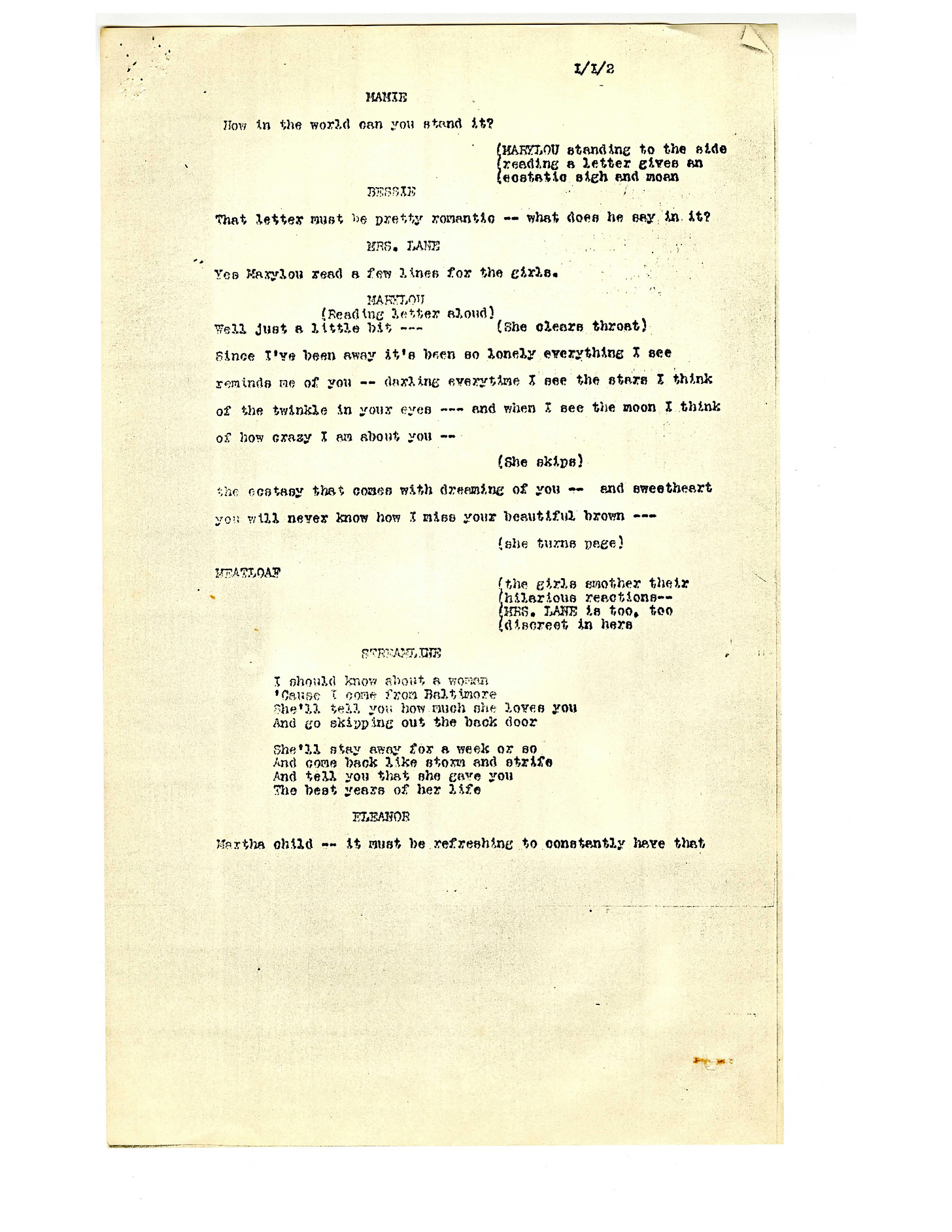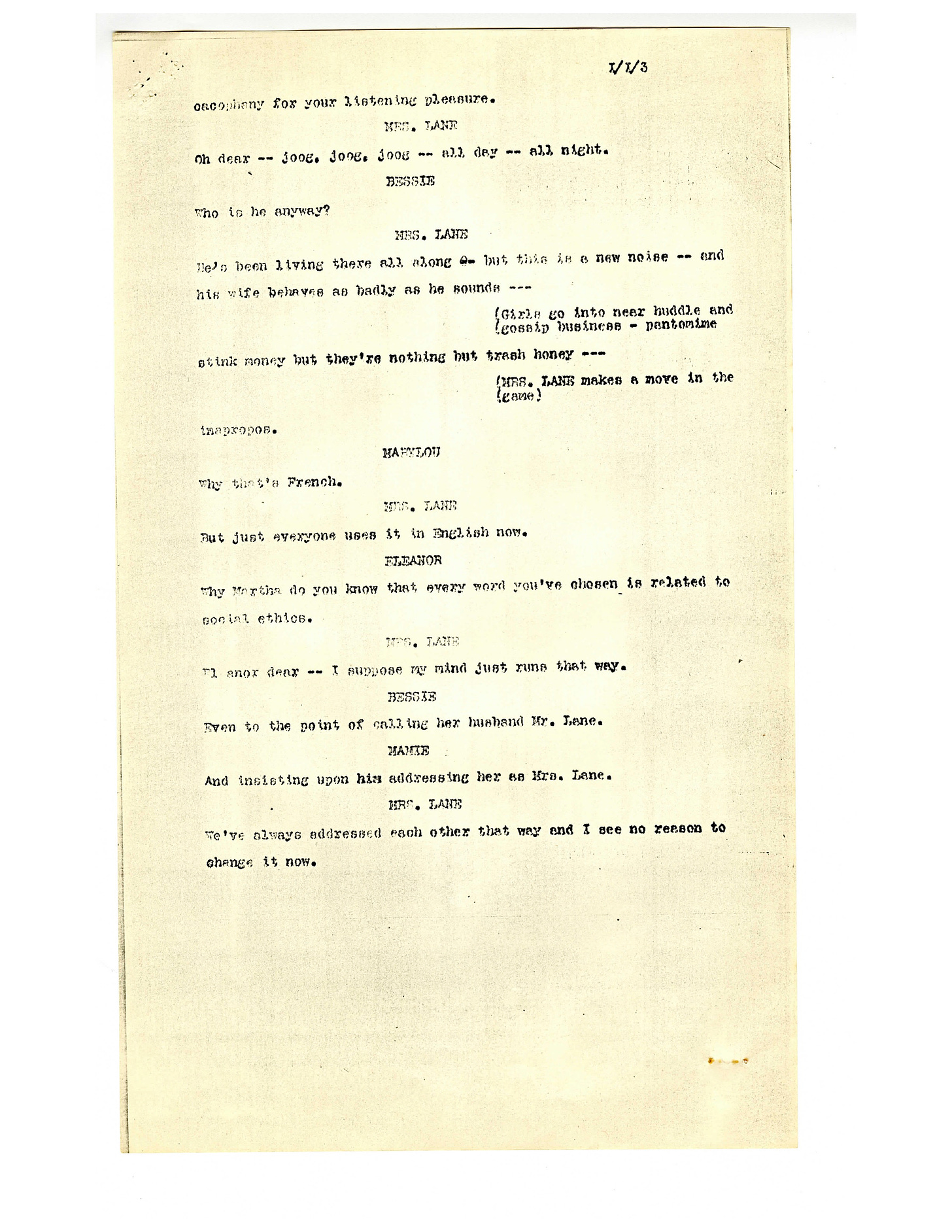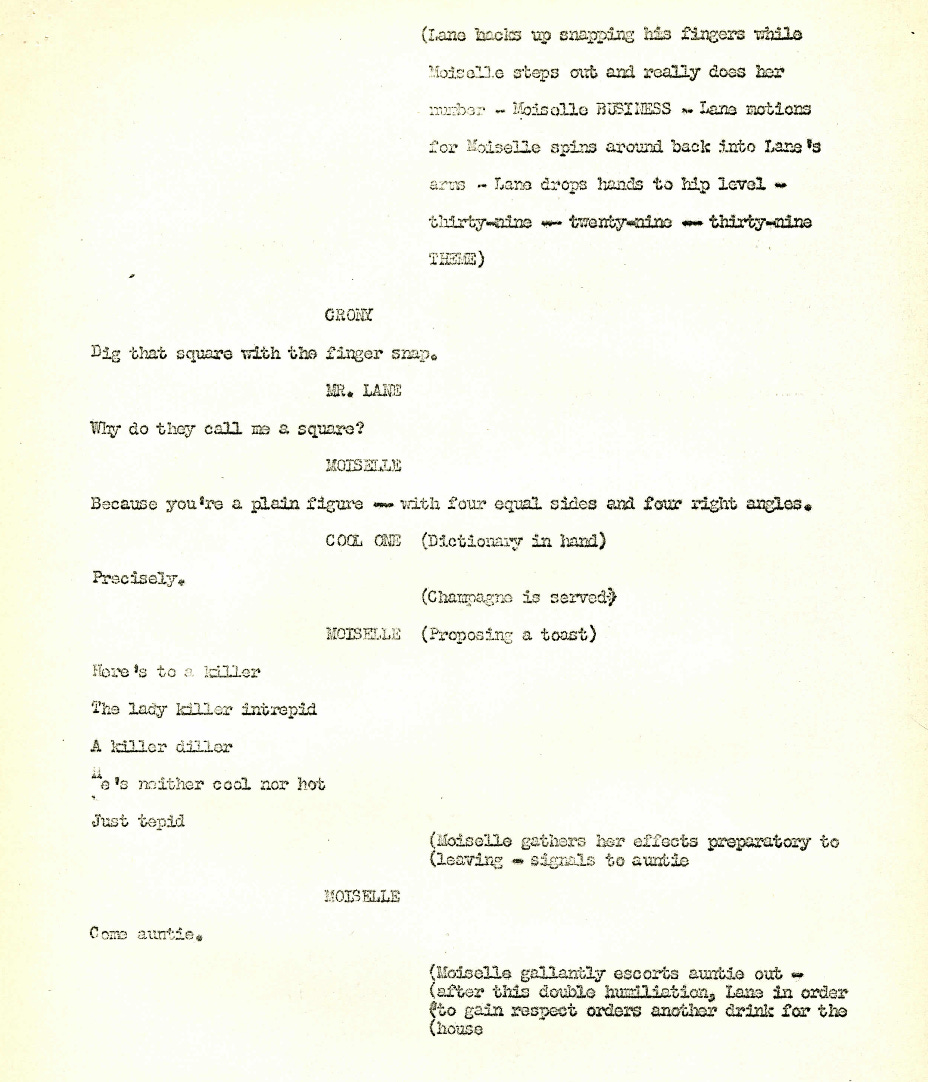(Paying subscribers, in this essay you will see pages from Duke’s own script, but for you only, there are additional pages at the bottom, plus three relevant pages from Mercer Ellington’s book.)
In the previous two essays we learned about this history of this show, and listened to surviving recordings of the songs. Theater professor John Franceschina summarizes the plot in detail starting on p.87 of his book. Mr. Lane is a “square”—that is, a man with four sides. Weidemann describes the show as a satire of white middle-class lifestyles of that era. But Duke intended the characters to be played by Black actors. He doesn’t explicitly say so, but it’s clear from some of the dialogue (for example, “your beautiful brown,” “signifying,” one woman calls another “child”) that all of the characters are Black.
Let’s read some of the script, in Duke’s own typing (never before shared). On the very first page you can see Duke’s lyrics for one of the songs for which he never composed music. In these pages, he is setting up a contrast between the women in the living room, who consider themselves “high class,” and the next door neighbor, Streamline Smith, a nightclub entertainer. On p.3, one of the women refers to his singing as being about “joog” which was slang for “sex.” Let’s read:
Mr. Lane, as you might guess, is very frustrated sexually. (The script indicates that Tuesdays are their special night, because it’s their only night to have sex.) He fantasizes about a “dream woman” whom he refers to as “She”—we heard her song last time. Finally he sneaks out to the nightclub and meets The Cool One, who Mercer recognizes as a type of Duke Ellington figure. Lane becomes convinced that the exotic dancer at the club, Mad Moiselle, is his “dream woman,” and invites her to “get together sometime.” She turns him down in front of the other men present, and he is humiliated. He tries to “save” the moment by dancing with her, but she calls him a square, rejects him again, and leaves. Here is that page, a key moment in the story:
In the third and last act, Lane returns home to his wife but cannot get over his anger at Moiselle:
He goes on and on like this, and finally picks up a riding crop (a small whip for horses), and imagines giving her a hundred lashes, snapping the whip in time to the music. But at the very end of the show he finds that he can’t get all the way to one hundred:
What th…??!! What kind of ending is this? And what does it all mean? We will talk about that, and more, in my next essay, which is about Duke’s attitudes towards women.
All the best,
Lewis
P.S. Paying subscribers, below you will see more pages from Duke’s own script, plus three additional pages of the script’s lyrics that appeared in Mercer Ellington’s memoir.
Keep reading with a 7-day free trial
Subscribe to Playback with Lewis Porter! to keep reading this post and get 7 days of free access to the full post archives.








